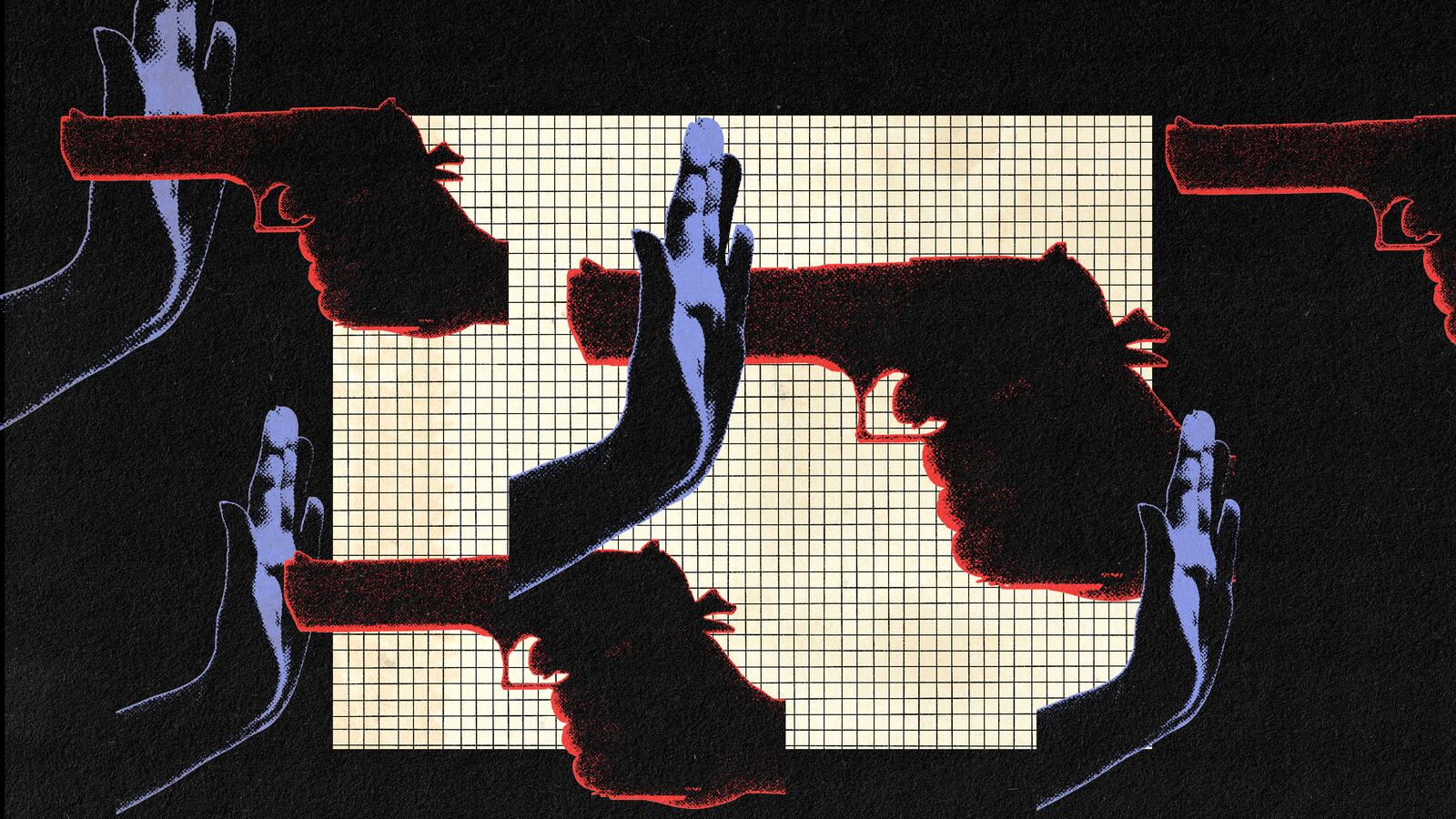In the past year, the Supreme Court has overturned the nationwide right to abortion, decimated affirmative action, and narrowed the separation between church and state. Now, it’s poised to rule on a federal law preventing people accused of domestic violence from owning firearms. And advocates are concerned.
The case, United States v. Rahimi, revolves around a Texas man named Zackey Rahimi whose girlfriend accused him of assaulting her and threatening to shoot her if she told anyone. The girlfriend filed for a restraining order, triggering a 1994 law—often referred to as the protection order prohibitor—that bars anyone under a domestic violence restraining order from owning a firearm.
But Rahimi appeared to take no notice, allegedly participating in five shootings around the Arlington, Texas area between December 2020 and January 2021. In one instance, he allegedly fired several shots into the home of someone to whom he had sold narcotics; in another, he was accused of shooting at the car of someone with whom he was involved in an accident. Later that year, he was arrested and sentenced to more than six years in prison, in part for violating the protection order prohibitor.
Last year, Rahimi appealed his case to the Fifth Circuit Court of Appeals, which overturned his conviction, claiming the 1994 law was an unconstitutional restriction on the right to bear arms. The Department of Justice appealed, and on Friday, the Supreme Court agreed to take up the case.
That decision has domestic violence advocates on edge. Statistics show that women are most likely to be killed by an intimate partner, and that their intimate partners are most likely to kill them with a gun. According to the National Network to End Domestic Violence, an abuser having access to guns makes it ten times more likely the victim will be killed.
Not only that, but research shows that violence often escalates in the period after a victim files for a restraining order, which is often the first time they have sought help outside the relationship. “Because domestic violence is about power and control, any time that there is a challenge to that control, you see an escalation of that violence,” said Natalie Nanasi, a professor at the Southern Methodist University School of Law who specializes in crimes against women.
The NNEDV condemned the Fifth Circuit’s decision to overturn the law in February, saying in a statement that the decision was “devoid of the lived experiences and understanding of survivors’ reality.”
“While some survivors may not wish to or be able to seek a conviction, an order of protection can be another tool for increasing survivor safety,” President and CEO Deborah J. Vagins said.
Nanasi noted that many states have similar protections on a local level, but said some may vote to remove them if the court overturns the protection order prohibitor. Victims in states without such protections would be left relatively defenseless. “The fear is that you have more angry abusers with guns,” she said. “And that usually doesn’t turn out well.”
Amy J. Sànchez, CEO of the Battered Women’s Justice Project, said the federal law adds an additional layer of protection that state laws do not: adding people under domestic violence restraining orders to the national background check database. Without this law, she said, there would be no requirement for states to update the database with this information.
Sànchez pointed to the infamous D.C. sniper case, in which a pair of men killed seven people and injured seven others in the Washington, D.C. area over the course of six months. When police caught up to the snipers, they did not have enough evidence to arrest them for the murders. Instead, they arrested one of the shooters, John Allen Muhammad, for possessing weapons while subject to a domestic violence restraining order. “If we didn’t have that law he would have continued doing that,” Sànchez said. “That law saved lives that day.”
The Fifth Circuit decision at issue was based on a ruling by the Supreme Court last year, New York State Rifle & Pistol Association Inc. v. Bruen, which stated that restrictions on firearms are unconstitutional unless there is a clear analogue to be found in 18th or 19th century law. To defend such a law, Justice Clarence Thomas wrote, the government “must demonstrate that the regulation is consistent with this nation’s historical tradition of firearm regulation.”
But experts said this test breaks down in the context of domestic violence protections, few of which existed in the 18th and 19th centuries. At that time, Nasani said, “women couldn't vote, women weren't working outside the home … and the idea of beating your wife was not something that was considered a bad thing, much less a crime.”
“This is really a paradigmatic case that shows how unworkable this Bruen standard is,” she added.
Still, Nasani said the speed with which the court agreed to take up the case made her “cautiously optimistic.” As Ian Milhiser pointed out in Vox, Justice Amy Coney Barrett has argued that we should allow “dangerous people” to be barred from having guns, and Justice Brett Kavanaugh has previously accepted firearms bans on people with severe mental illnesses.
“My hope is that the Supreme Court wants to use the Rahimi case as an opportunity to clarify a bit further what the analysis under Bruen should be,” Nasani said.





